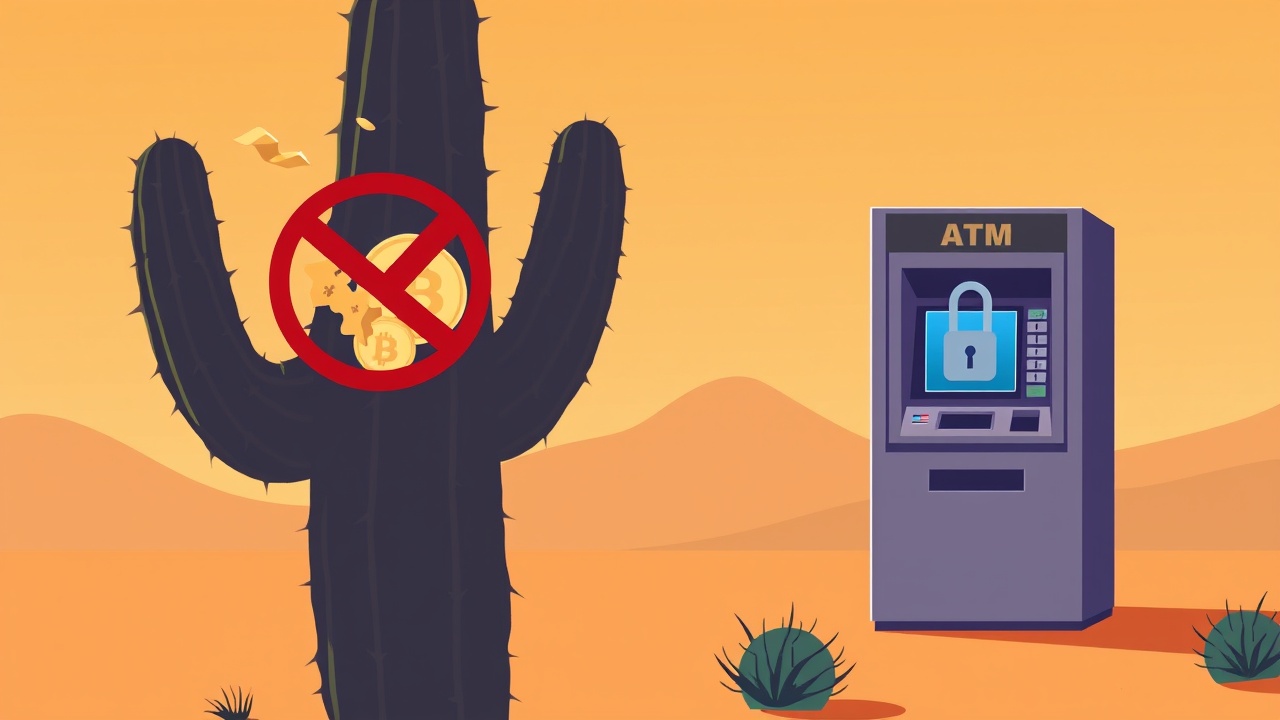Arizona Governor Vetoes Cryptocurrency Bills
In a significant move on Monday, Arizona’s Governor Katie Hobbs opted to veto two legislative proposals that could have expanded the use of cryptocurrency within the state, while simultaneously enacting a stringent new law focused on regulating cryptocurrency ATMs. The rejected bills included Senate Bill 1373, intended to create a Digital Assets Strategic Reserve Fund designed to manage cryptocurrencies obtained through seizures or state appropriations.
Although this bill proposed a management framework without authorizing the use of public funds for the procurement of digital currencies, Hobbs pointed out the current instability in the cryptocurrency market as the reason for her veto, stating,
“Current volatility in cryptocurrency markets does not make a prudent fit for general fund dollars.”
Her veto was communicated in a letter to Senate President Warren Petersen.
Rejection of Additional Cryptocurrency Proposals
Alongside SB 1373, Hobbs also vetoed Senate Bill 1025, known as the “Arizona Strategic Bitcoin Reserve Act.” This more ambitious proposal suggested that up to 10% of the state’s treasury and retirement funds could be invested in Bitcoin and other digital assets, posing a significant commitment of taxpayer resources. The discussions surrounding this bill signify Arizona’s position alongside at least nine other states that have similarly rejected proposals for Bitcoin reserve measures, as noted in data from Bitcoin Laws.
In addition to these vetoes, the Governor also dismissed Senate Bill 1024, which would have enabled various Arizona agencies to accept cryptocurrency payments for fines, taxes, and fees, albeit with agreements with vetted providers. While acknowledging the bill’s intention to mitigate risk, the Governor expressed concern that it nonetheless failed to sufficiently shield the state from potential pitfalls associated with the volatile cryptocurrency market.
New Legislation Focused on Cryptocurrency Regulation
On a more regulatory front, Hobbs signed House Bill 2387, aimed specifically at monitoring and controlling cryptocurrency kiosks and ATMs. This new legislation includes requirements for operators to display fraud warnings in multiple languages, issue transaction receipts featuring hashes and wallet addresses, and apply blockchain analytics to prevent funds from being sent to flagged wallets suspected of being involved in fraudulent activities. Furthermore, it imposes limits on transactions for new and existing users at crypto ATMs, with caps set at $2,000 per day for new customers and $10,500 for established ones.
Also stipulated is the necessity for 24/7 customer support and full documentation of transactions conforming to anti-money laundering regulations.
Future Considerations for Digital Asset Regulation
Despite her recent vetoes that suggest a cautious approach to crypto legislation, Governor Hobbs has not entirely ruled out further regulation of digital assets. Just a couple of days later, she signed House Bill 2749, which amends Arizona’s property laws to incorporate digital assets, thereby allowing the state to maintain unclaimed cryptocurrency without the requirement to liquidate it into traditional currency. This move, championed by House Commerce Committee Chairman Jeff Weninger, indicates a progressive acknowledgment of the growing importance of digital assets in the financial landscape.




